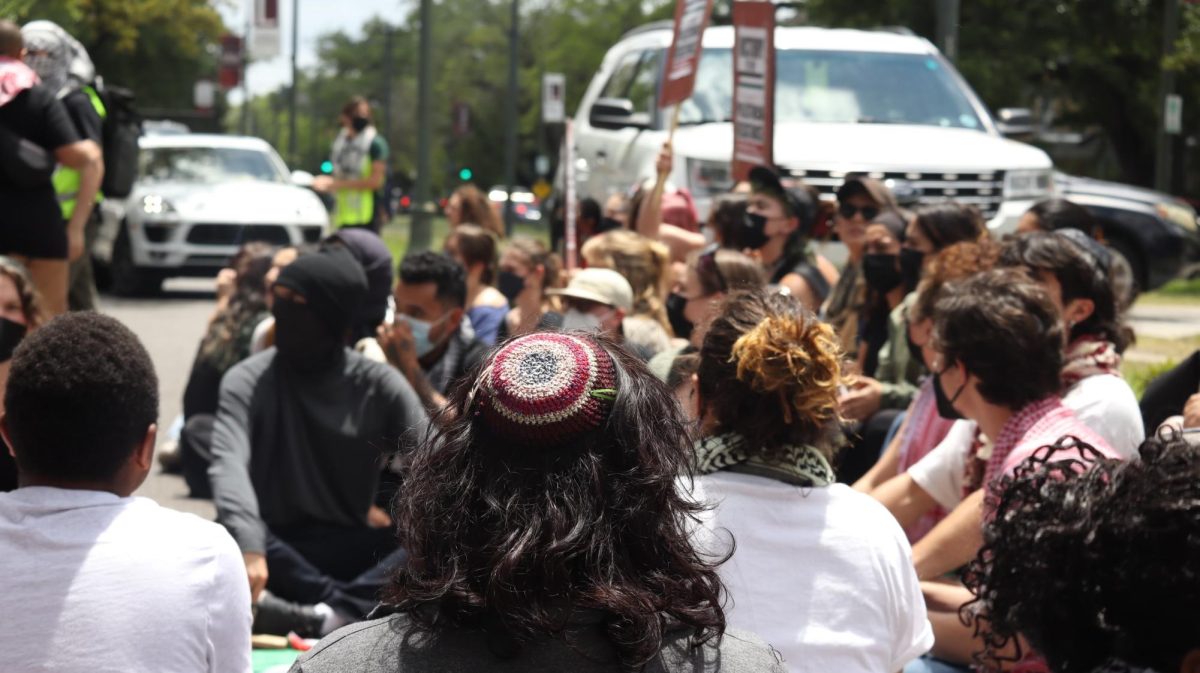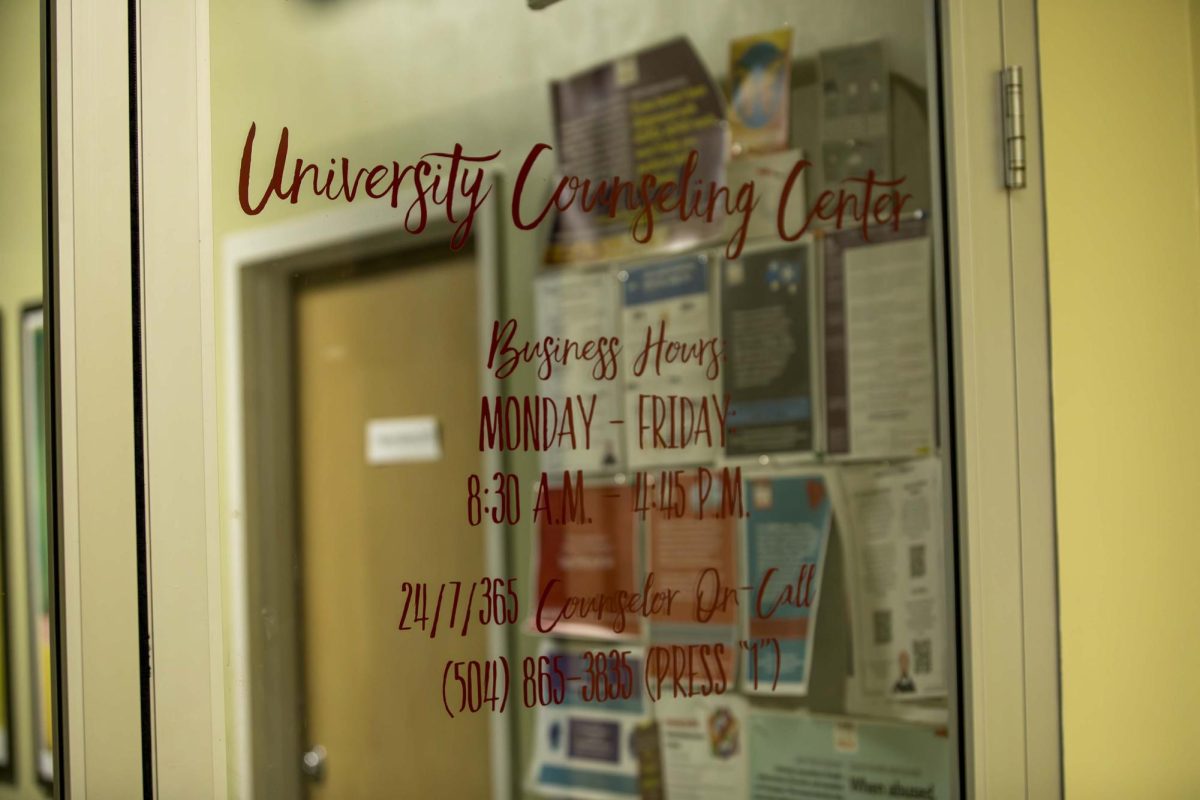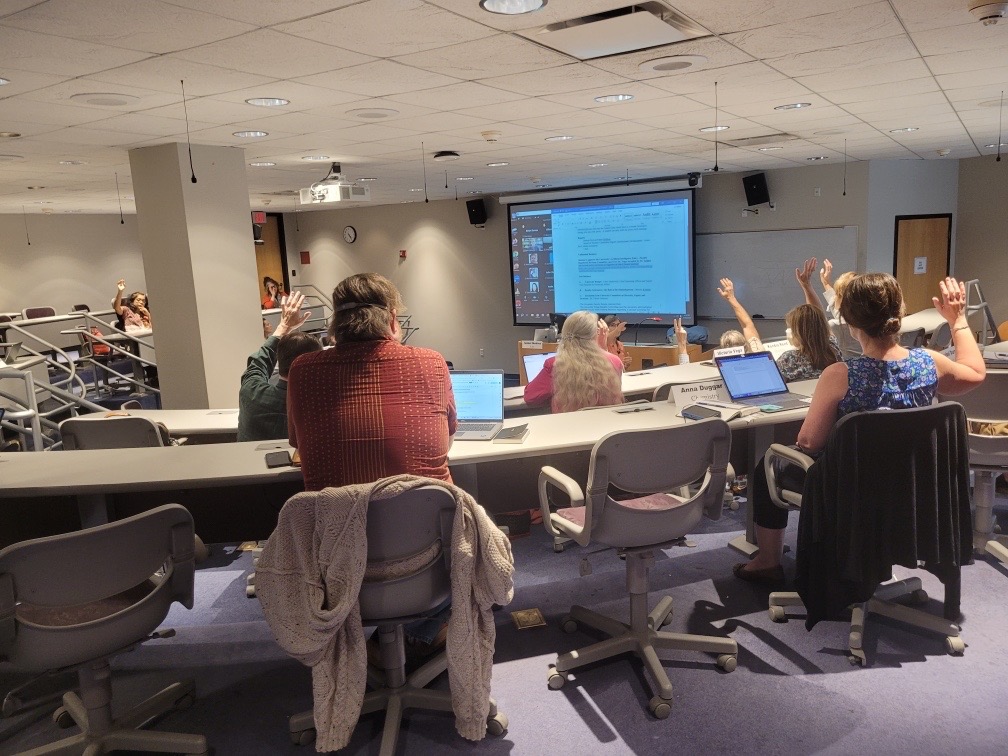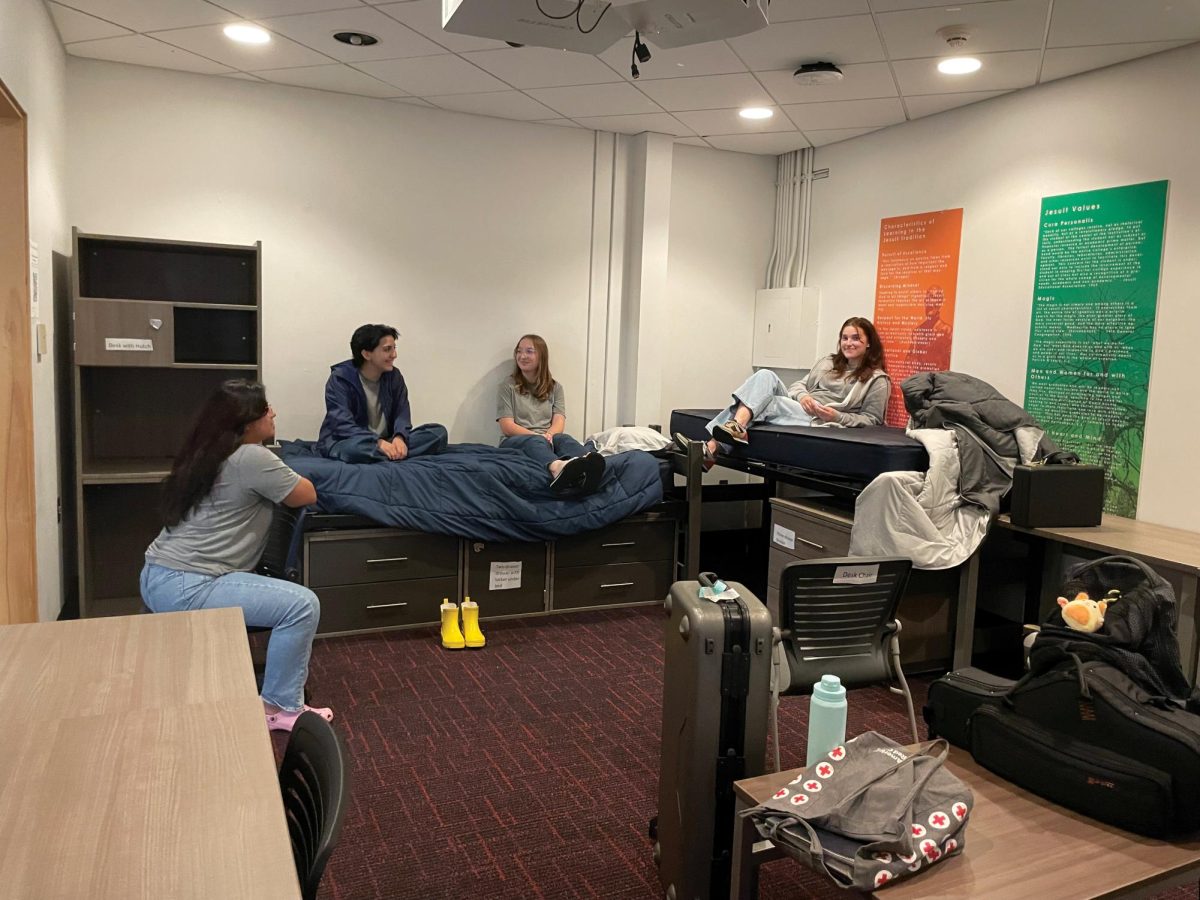The abstract concept of staffing cuts hit home for History Junior Jasmine Jackson and her nearly three-dozen classmates when they learned they would be the last Loyola class to be taught by a professor they say they love.
That’s because Kathleen Fitzgerald, visiting associate professor of sociology, was one of 12 faculty members who didn’t have their contracts renewed this year because of university efforts to close a financial hole left by a smaller-than-expected freshman class this past fall.
University officials initially worked to minimize the cuts by trimming departmental operating budgets, and then by offering a voluntary severance plan to certain eligible long-time employees. Ultimately 18 staff members from across the university were laid off, and several other staff members were given fewer weekly hours to work, effectively reducing their pay.
The 12 faculty members whose contracts were not renewed were all “extraordinary” faculty members, meaning they were not tenured or eligible for tenure. Administrators say their contracts were not renewed because, with fewer freshman taking common curriculum classes, the university didn’t have enough sections for them to teach.
Jackson said she and many of her classmates valued Fitzgerald’s contributions and teaching style and was sad to see her go.
“Loyola is a good school because of its professors, so for me, going around and saying that this is in the best interest of the students – that doesn’t really make sense. You are getting rid of professors that make this school great,” Jackson said.
When Fitzgerald learned that she would be one of the faculty members to be let go, she emailed her students, urging them to reach out to administrators and voice their disapproval. Other faculty members were less vocal, and no official list has been published showing which teachers were let go.
Roger White, interim dean of the College of Social Sciences, said that the decision not to renew professors’ contracts was not based on job performance – they weren’t cut because they were bad professors; rather, it was based on employment status and financial circumstance.
White said that the department could not touch tenured faculty members or tenured track faculty members. For this reason, White said that he could only chose from non-tenured faculty, whose contracts are renewed on an annual basis.
“We were very constrained in the terms of the choices that we could make,” White said.
Fitzgerald said she believes that the decision should have been based on her teaching performance.
“Essentially, we are at an institution where faculty firing decisions are being made without regard to performance. I find that appalling,” Fitzgerald said.
Marcus Kondkar, professor and chairman of the sociology department, notified Fitzgerald that her contract would not be renewed next year, Fitzgerald said.
Kondkar said that White could have notified Fitzgerald, but he decided to inform her himself.
“I thought it would be kinder than having her summoned to the dean’s office. It seemed like the right thing to do as her chair and colleague – it’s what I would have preferred if I were in her situation,” Kondkar said.
Many students say they are concerned that the reduction of teachers will mean that some of their favorite classes will no longer be taught.
Fitzgerald has taught courses such as Race, Racism and Privilege, Sociology of Sexualities, and Sociology of Food and Food Justice. She says that students will be affected without these courses offered in the future.
“No other members of my department specialize in these areas so it is unlikely those courses are going to be taught in the near future. That is a major loss to students,” Fitzgerald said.
Kondkar said that in some cases, the loss of faculty with specializations may mean some classes cannot be filled.
“The sociology department’s loss of the extraordinary faculty line means that we will not be able to offer as many different courses as we have in the past,” Kondkar said.
Fitzgerald said she hopes to get the decision overturned, but will apply for sociology jobs that may appear in the meantime.
White said that moving forward, he will personally give notifications to faculty members when necessary.
“Any notifications that I need to give, I will do face to face. Not because I enjoy it, but because it is the right thing to do,” White said.
For their part, Fitzgerald’s students have already begun speaking out about their feelings.
Charlotte Lapp, sociology junior, said that she thinks students will be greatly affected by professors not being able to return next year.
“This does not only affect me, but the entire student body. These professors are what keep us coming back year after year and they are the people we actually learn from,” Lapp said.
Jackson said that she, along with other students, have submitted letters to the president and provost of Loyola to voice their concerns about Fitzgerald’s future.
“She is an amazing educator, and I’ve gone to her class repeatedly just being inspired, and I think that’s kind of what education is about. To know that she’s not returning, I think that’s a huge shame,” Jackson said.
Alicia Serrano may be reached at [email protected]












